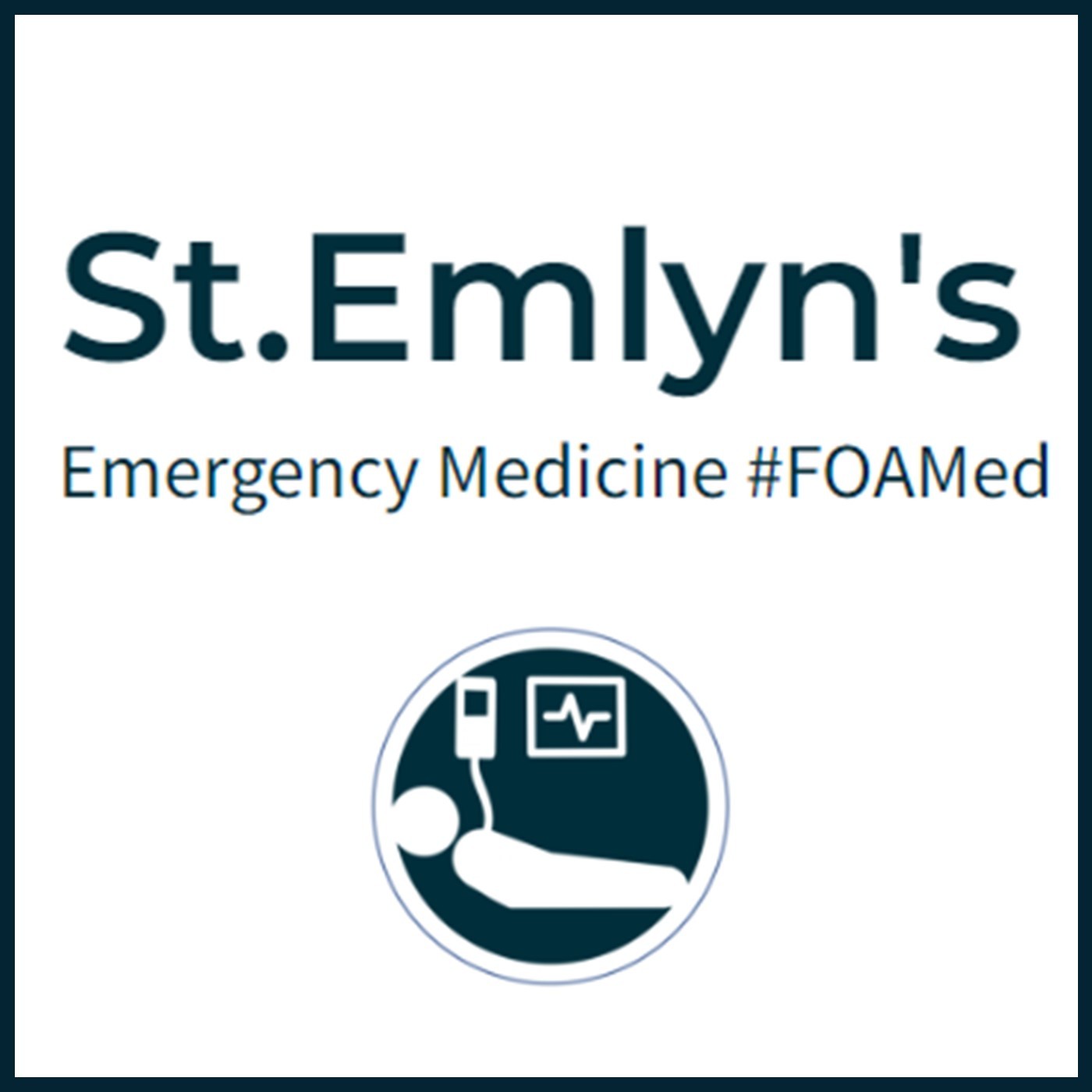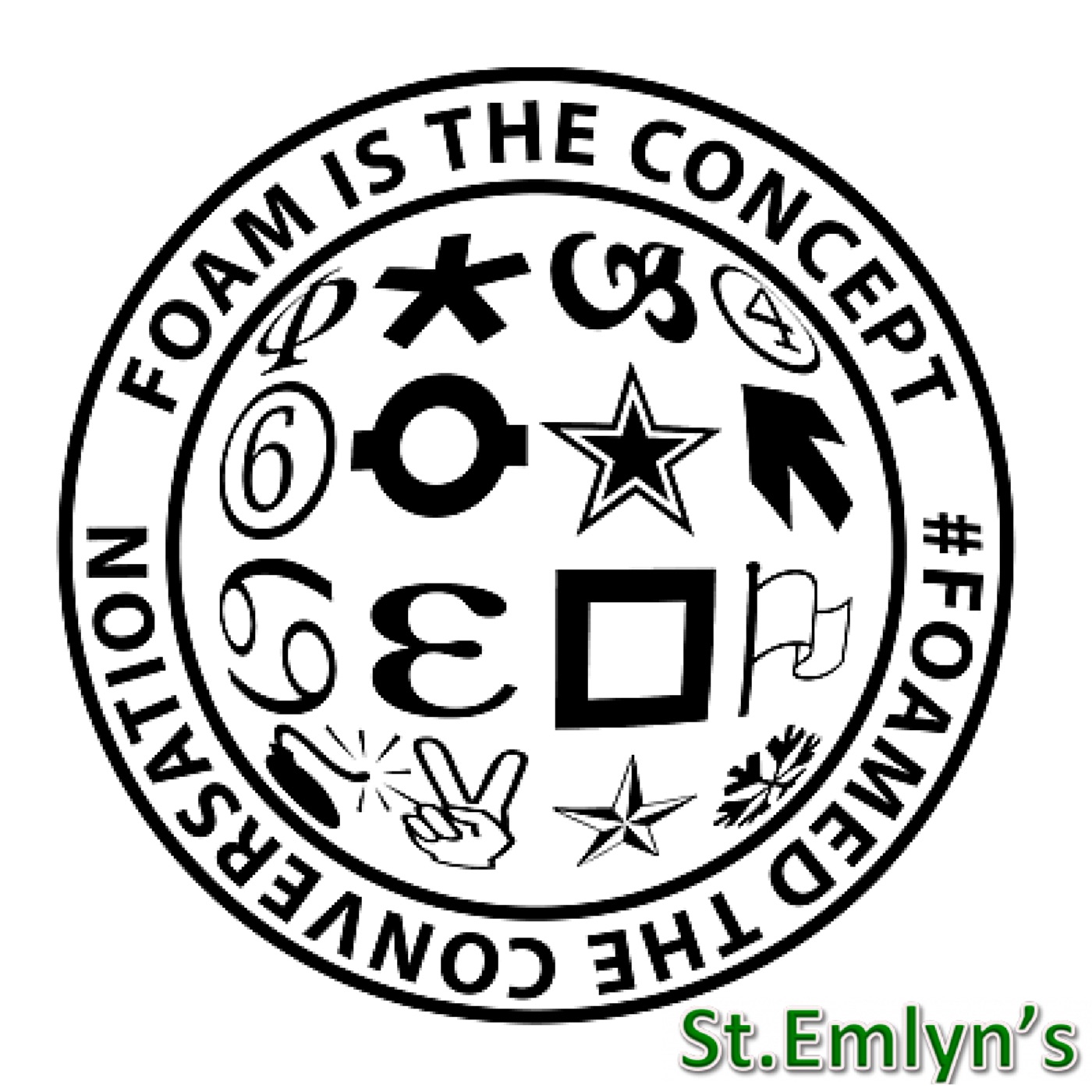
1.3M
Downloads
272
Episodes
A UK based Emergency Medicine podcast for anyone who works in emergency care. The St Emlyn ’s team are all passionate educators and clinicians who strive to bring you the best evidence based education. Our four pillars of learning are evidence-based medicine, clinical excellence, personal development and the philosophical overview of emergency care. We have a strong academic faculty and reputation for high quality education presented through multimedia platforms and articles. St Emlyn’s is a name given to a fictionalised emergency care system. This online clinical space is designed to allow clinical care to be discussed without compromising the safety or confidentiality of patients or clinicians.
Episodes

Friday Jun 15, 2018
Ep 113 - The best of badEMfest 2018
Friday Jun 15, 2018
Friday Jun 15, 2018
Exploring the World of Emergency Medicine: Highlights from BadiM and Resuscitology Conferences
Welcome to the St Emlyn's podcast! Today, we're diving into the exciting and insightful experiences from recent conferences in the world of emergency medicine. Join us as we explore the key takeaways and reflections from the BadiM Conference in South Africa and the Resuscitology Conference in Australia. These events not only highlighted innovative approaches to emergency care but also fostered a sense of community and collaboration among healthcare professionals.
Setting the Scene: Weather and Warm Welcomes
As is customary, let's start with a quick weather update. It was a pleasant 16 degrees in Verchester, and similarly, New South Wales enjoyed beautiful blue skies at 16 degrees. The crisp air and clear skies set a perfect backdrop for our discussions on the latest developments in emergency medicine.
BadiM Conference: A Unique Experience in South Africa
The BadiM Conference in Greaten, South Africa, was a truly remarkable event. Located about two hours east of Cape Town, the conference was set in the picturesque hills, creating a beautiful and serene environment for learning and networking. This residential conference was a blend of a festival and a professional gathering, fostering a sense of community among attendees.
Building a Festival of Ideas
One of the standout aspects of the BadiM Conference was its emphasis on community and co-creation. Attendees camped in tents, shared meals, and engaged in discussions in large TP-style tents. This setting broke down traditional power hierarchies and encouraged open and honest conversations. The conference aimed to build a festival atmosphere where learning extended beyond formal sessions to informal interactions over coffee or drinks.
Addressing African EMS Challenges
The conference kicked off with a focus on African EMS and the unique challenges faced in delivering emergency care in resource-limited settings. Haikert's talk on African solutions for African problems was particularly enlightening. She emphasized the importance of developing context-specific solutions rather than applying models from high-income countries directly to African contexts. This approach highlighted the need for mutual learning and collaboration, ensuring that solutions are relevant and sustainable.
The Concept of Relief Porn
A thought-provoking concept discussed was "relief porn," which refers to the well-intentioned but often misguided efforts of delivering aid without considering long-term sustainability. The idea is to avoid short-term fixes that may not integrate well into existing systems. Dave Drew's discussion on teaching BLS underscored the importance of building comprehensive systems rather than isolated interventions.
Advocacy and Clinician Responsibility
Nat Fertil's talk on the role of clinicians as advocates resonated deeply. Drawing parallels between working in a war zone and addressing complex health needs in urban settings, she emphasized the importance of standing by patients who cannot advocate for themselves. This advocacy extends beyond clinical care to addressing social determinants of health.
The Gender Unicorn: Caring for LGBTQIA Patients
Caleb Lachnitz's talk on the Gender Unicorn and caring for LGBTQIA patients was a highlight. He stressed the need for healthcare providers to understand and respect diverse gender identities and expressions. The Gender Unicorn graphic, which differentiates between gender identity, gender expression, sex assignment at birth, and attraction, was a valuable tool in fostering better understanding and care for LGBTQIA patients.
Day Two: Workshops and Practical Learning
The second day of the BadiM Conference was workshop-focused, providing hands-on learning opportunities.
Feedback in Tricky Circumstances
We conducted a workshop on giving feedback in challenging situations. This session aimed to equip participants with skills to provide constructive feedback, even in difficult scenarios. We discussed techniques for addressing behavioral issues and ensuring feedback is productive and empowering.
Treating Pregnant Patients and Pediatric Emergencies
Penny Wilson's talk on treating pregnant patients was reassuring, emphasizing that treating the mother is often in the best interest of the baby. Ross Fisher's engaging session on pediatric emergencies, specifically addressing foreskin issues, provided practical insights for managing these conditions in the emergency department.
Tracheostomy Emergencies in Children
A session on tracheostomy emergencies in children, led by James Booth and his team, highlighted the importance of patient education and family collaboration. In settings where community services may be limited, working closely with families is crucial to managing chronic health problems effectively.
Ophthalmology and Trauma Care
Ophthalmology in remote settings and trauma care were also significant topics.
Innovative Ophthalmology Solutions
William Mapperman's presentation on using the Vula app for managing eye problems in remote areas showcased the power of electronic media in enhancing healthcare delivery. This app has significantly improved the quality of eye care across South Africa and other African nations.
Chest Trauma and Autotransfusion
Tim Hardcastle's discussion on chest trauma and the use of drains for autotransfusion was enlightening. This technique, which involves collecting and retransfusing blood from a hemothorax, is a practical solution in resource-limited settings with high rates of penetrating trauma.
Managing Coagulopathy and Intubation in Shocked Patients
Debates on managing coagulopathy and intubating profoundly shocked patients provided valuable insights. Emphasizing the importance of doing the basics well, such as using TXA and maintaining temperature, was a key takeaway. For intubation, using low doses of ketamine and high doses of rocuronium, along with preparing for cardiovascular collapse, were highlighted as best practices.
Human Factors and Emotional Resilience
Human factors and emotional resilience were recurring themes throughout the conference.
The Impact of Violence and Trauma
Dom Pinnick's talk on gangs and domestic violence in South Africa shed light on the broader societal impact of violence. The discussion underscored the need for emergency departments to be prepared for the complex emotional and physical needs of these patients.
Sleep Hygiene and Self-Care
Natalie May's session on sleep hygiene was a timely reminder of the importance of self-care. Sharing personal experiences and practical tips, she highlighted the universal challenges of sleep deprivation in the medical profession and offered strategies to improve sleep quality.
Super Bosses: Leading with Compassion
Sardlery's talk on being a "super boss" resonated with many. Emphasizing the importance of amplifying the talents of team members and creating a positive environment, he highlighted the role of compassionate leadership in emergency medicine.
Final Day and Closing Reflections
The final day of the BadiM Conference was a half-day, focusing on simulation workshops and additional learning opportunities.
Simulation Workshops and Major Incident Management
Simulation workshops, including a major incident workshop, provided hands-on learning experiences. Discussions on managing major incidents, such as the Manchester bombing and a fuel tanker explosion in Mozambique, highlighted the importance of having a common language and system for emergency management.
Venomous Plants and Animals
A workshop on venomous plants and animals featuring actual snakes and spiders added a unique and context-specific element to the conference. Understanding local environmental hazards is crucial for providing effective emergency care in different regions.
Organ Donation and Cruise Ship Medicine
Dave Thompson's session on organ donation in South Africa and Caroline Lewis's talk on working on cruise ships provided diverse perspectives on emergency medicine. These sessions emphasized the need for specialized skills and adaptability in various medical settings.
Personal Stories and Patient Safety
Kirsten Kingma's personal story of crashing a paraglider and subsequent injuries provided a poignant reminder of the vulnerability of healthcare providers as patients. Her insights into the patient experience underscored the importance of empathy and effective communication in healthcare.
Resuscitology Conference: Reflective Learning in Australia
The Resuscitology Conference, organized by Cliff Reed, was another standout event. Held in the Blue Mountains of Australia, this residential course focused on case-based reflective learning.
Case-Based Learning and Human Factors
Participants brought challenging resuscitation cases, which were discussed in detail using the STEPS approach (Self, Team, Environment, Patient, System). This method facilitated deep learning and practical problem-solving.
Fresh Air Life and Wellness
The concept of "Friluftsliv" (fresh air life) was integrated into the conference, encouraging outdoor activities and wellness. This holistic approach to learning and self-care was well-received by participants.
Breaking Bad News and Debriefing
One significant takeaway was the idea that breaking bad news does not always have to be the responsibility of the treating clinician. This team-based approach allows for emotional support and cognitive load sharing. The importance of debriefing and support for team leaders was also emphasized.
Looking Ahead: Future Conferences and Learning Opportunities
As we reflect on these enriching experiences, we're excited about upcoming events. The St Emlyn's Live Conference on October 9th promises to be another exceptional gathering, featuring keynote speakers Natalie May and Claire Richmond from Sydney HEMS. Additionally, the Teaching Co-op Course will offer a masterclass in medical education, focusing on practical skills for bedside teaching and departmental learning.
For those interested in Resuscitology, the next event is scheduled for November 15th and 16th. This innovative course will continue to build on the success of its inaugural session, providing a platform for reflective learning and collaboration.
The Value of Conferences in Emergency Medicine
While conferences can sometimes be seen as mere gatherings, the evolving quality and focus on interactive, participant-driven content have transformed them into valuable learning experiences. Events like BadiM and Resuscitology highlight the importance of community, collaboration, and continuous improvement in emergency medicine.
Thank you for joining us on this journey through the world of emergency medicine conferences. We hope to see you at future events, whether in Manchester or Sydney and continue to learn and grow together. Until then, enjoy your practice, stay curious, and keep pushing the boundaries of emergency care.

No comments yet. Be the first to say something!